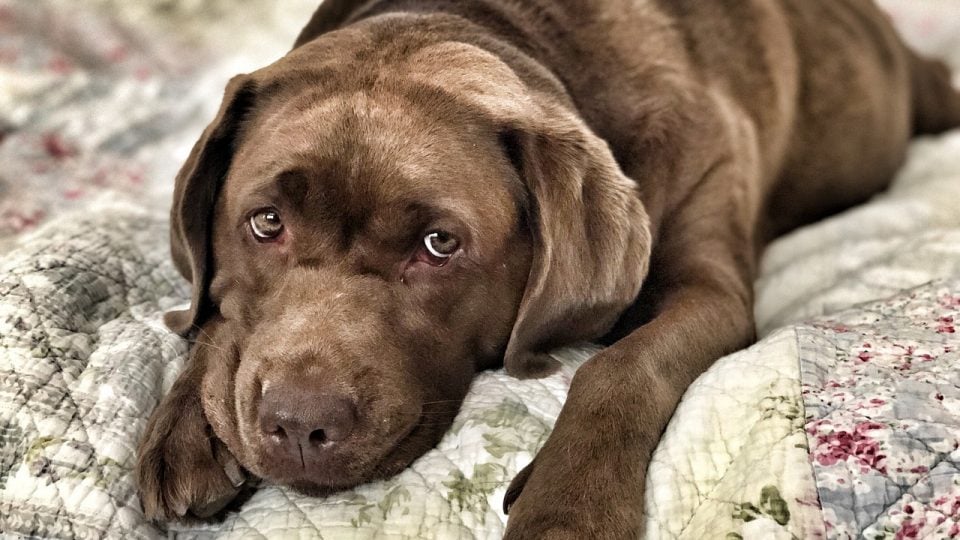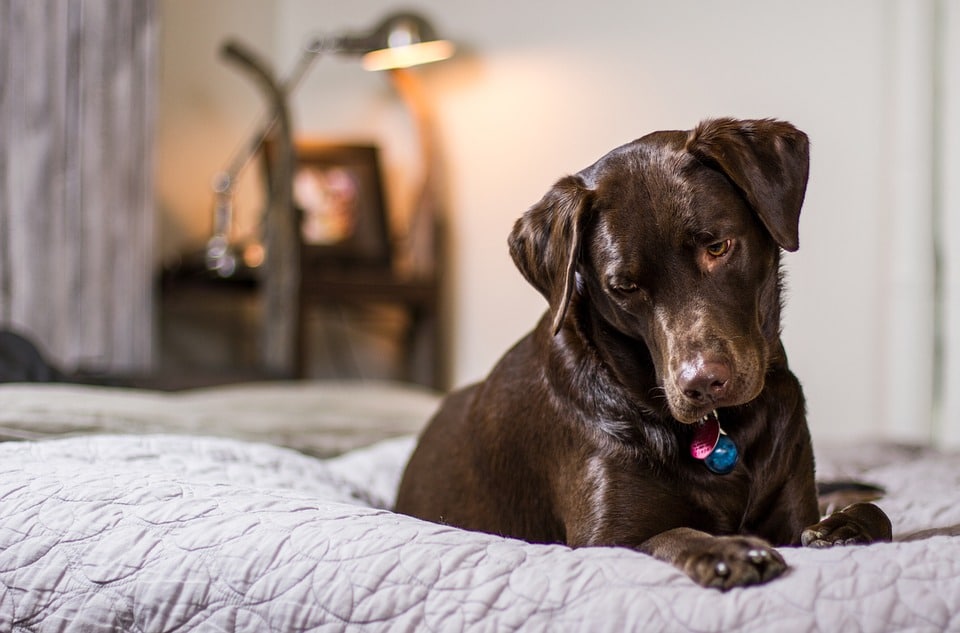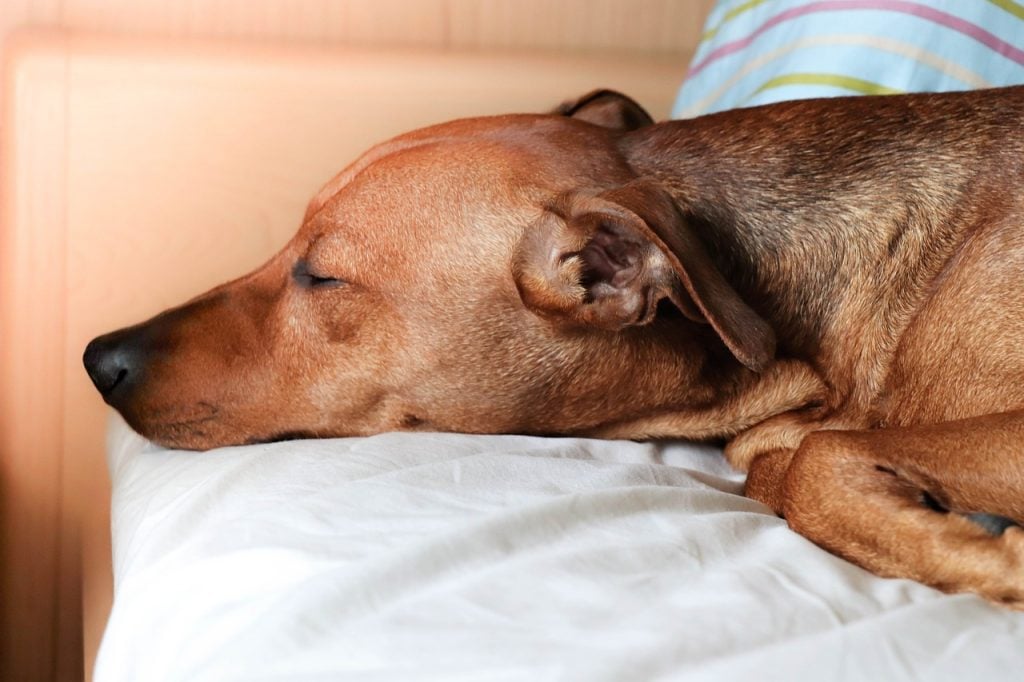- Not a substitute for professional veterinary help.
Nobody is perfect. Everybody has accidents. And that includes your dog. So why, oh why, does your dog pee on the bed? Is it a straight-up accident or something else?
It turns out, the reasons a dog pees on the bed can be complex. It could be a medical issue, a marking problem, or a whole host of other things.
Here’s what you need to know if your dog is peeing on the bed for your best shot at curbing the behavior.
Medical Reasons Your Dog Peed on the Bed
Is your dog displaying other health warnings or symptoms?
First and foremost, your pup may have a medical condition, especially if peeing on your mattress is sudden and new. Have your dog checked out ASAP by your veterinarian to ensure that there isn’t an underlying issue explaining why he’s wetting the sheets. A urinary tract infection, for example, often leads to excess urination and overall discomfort.
According to Dr. Mike McClenahan, a veterinarian with the Studio City Animal Hospital: “I always say that when you’re addressing inappropriate urination (inappropriate to us, that is) we first rule out medical issues. All the Prozac in the world won’t fix a bladder stone, so make a trip to the vet first. Then we can look to see if it’s a function of incomplete potty training or an anxiety disorder.”
So try to temper your frustration. “Dogs are just looking for a bathroom, and if we don’t tell them where to go they’re going to pick a place that seems nice and soft and quiet. Like a bed during the day.”
Understanding Dog Behavior
Once your dog gets a clean bill of health from the vet, it’s time to try to figure out why your dog is peeing the bed.
Although it’s tempting to assume your dog is peeing on your bed on purpose to “get back at you,” canines aren’t known for being vindictive!
Instead, try paying attention to your pet’s body language and spend quality time together, which will help you both better communicate. Ask yourself if you’ve honestly completely and fully house-trained your dog. Could he be telling you he needs a refresher course?
If your dog is a puppy or newly adopted, this could be doubly true. Is he going out to relieve himself enough times during the day? By jotting down and tracking the times your dog pees and poops, you will identify patterns and be able to put him on a schedule that better suits his needs.
Think about hiring a dog walker in your area if you’re not able to handle the potty breaks required for a day.
Iif your dog is only peeing in the house, and especially if you have an unaltered male dog, your pet could actually be “marking” his territory. In that case, neutering often helps alleviate the behavior.
Lastly, don’t forget to positively reinforce your dog for going potty where he’s supposed to by using treats, pets, or praise. And please, skip the punishment. It doesn’t work to shout at your dog or rub his nose in pee; all it will do is scare him and tear at the bond between you. Nobody wants that.
How to Clean Dog Pee
The trouble with potty accidents is that the pee scent lingers. Not just for you, but also for your dog. That ongoing scent of pee acts as a kind of invitation, reminding your dog to “go here!”
To break the cycle, clean as quickly as possible, as the sooner you clean it the less deep it’ll go. Sheets can go in the wash. If the pee has reached the mattress, blot the area with paper towels or a cleaning cloth to soak up as much moisture as possible, but avoid wiping, which can spread the stain.
People recommend different products for cleaning. Once you’ve blotted the area, you can try spreading baking soda over top, which will help soak up moisture. After an hour, vacuum it up.
Alternately, you can try to reduce the scent by rubbing watered-down vinegar on the stain.
If homemade products aren’t working, your local pet store will also have products designed to reduce the scent of dog pee.
How to Get Your Dog to Stop Peeing on the Bed
The key to all dog training is to help your dog quit an undesired behavior while teaching them a different behavior to replace it. If you catch your dog about to pee on the bed, quickly scoop them up and put them outside, praising them for peeing outside instead. A certified positive-reinforcement based dog trainer can help with this if you’re feeling overwhelmed.
And you know what they say: an ounce of prevention is worth a pound of cure. Make a habit of closing the door to the bedroom whenever your dog is left unattended, or create a barrier that makes it difficult for your dog to access the mattress.
Many owners use crates to keep pets calm and reduce destruction when they aren’t home, and it also gives owners a chance to catch their pet in the act—which is necessary to re-train pets with the right behavior.
If nothing else, a waterproof mattress cover can keep your pet’s pee from sinking too deep and make cleanup easier should an accident happen.





